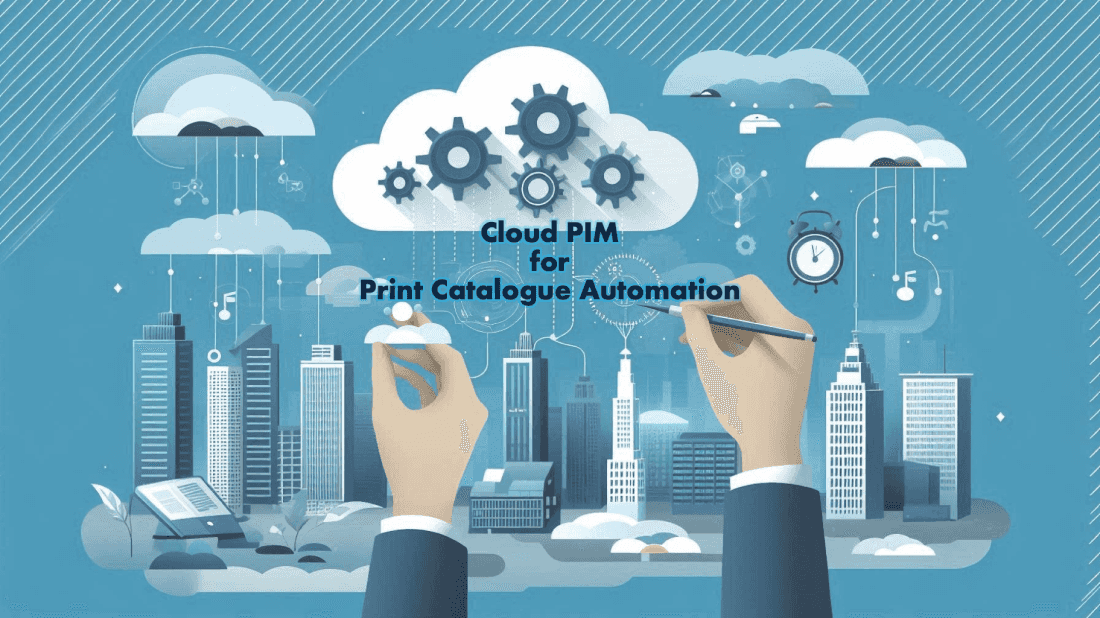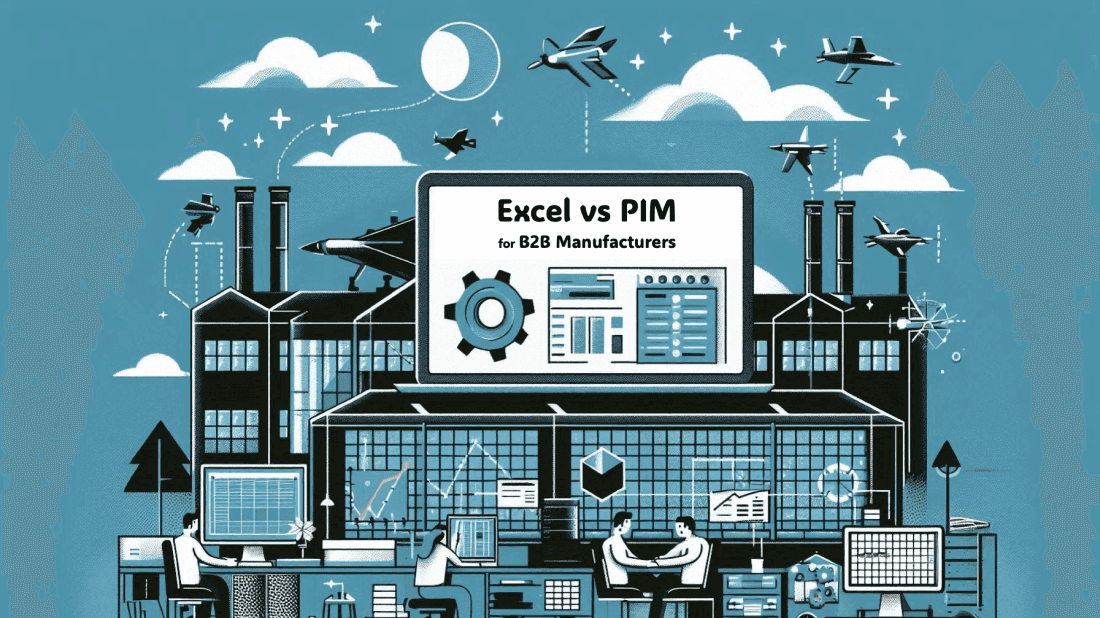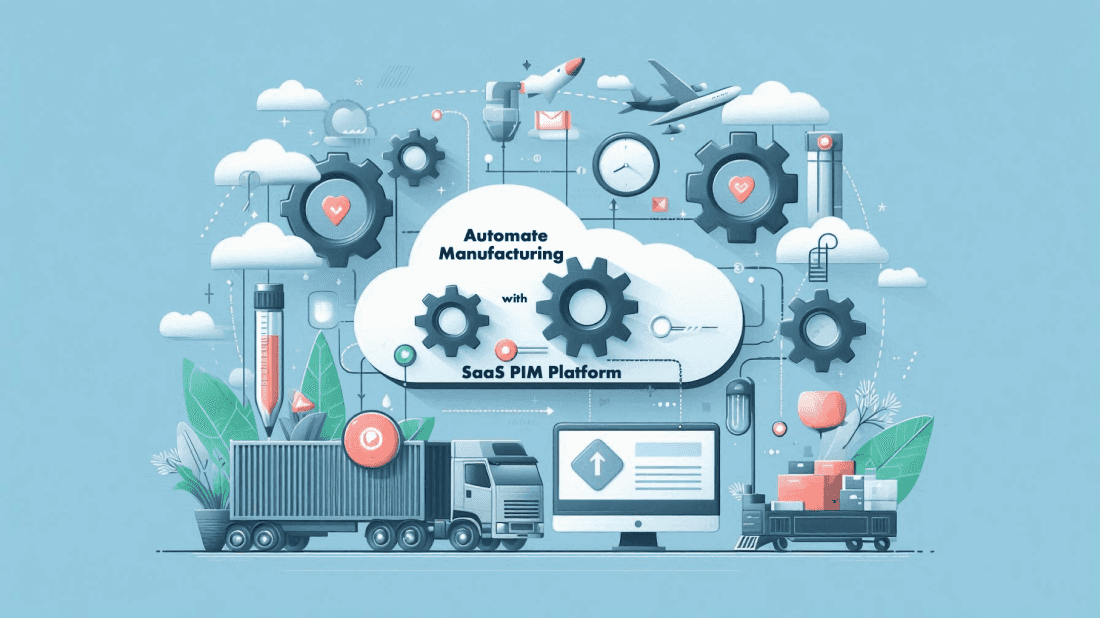May 12th, 2024
Maximizing Efficiency with MACH-based PIM Systems for B2B Manufacturers
Categories:Product Information Management SystemIn the B2B manufacturing sector, managing complex product data efficiently is crucial.
With the advent of MACH (Microservices, API-first, Cloud-native, and Headless) architecture, Product Information Management (PIM) systems ,have evolved to offer unprecedented flexibility, scalability, and efficiency. This article delves into how MACH-based PIM systems can transform product data management for B2B manufacturers, particularly those selling through channels such as partners and distributors.
What is a MACH-based PIM System?
A MACH-based PIM system leverages modern architectural principles to provide a robust, scalable, and flexible solution for managing product information. Here’s a breakdown of what each component of MACH stands for:
- Microservices: Individual components of the PIM system that can be developed, deployed, and scaled independently.
- API-first: Ensures that all functionality is accessible via APIs, facilitating seamless integration with other systems.
- Cloud-native: Utilizes the cloud to enhance scalability, availability, and performance.
- Headless: Decouples the backend from the frontend, allowing for more flexibility in how data is presented across different channels.
The Challenges Without MACH-based PIM
Without a MACH-based PIM system, manufacturers often face numerous challenges:
- Rigid Systems: Traditional monolithic systems lack the flexibility needed to adapt to changing business requirements.
- Integration Issues:Integrating product data with various internal and partner systems can be complex and costly.
- Slow Time-to-Market: Inefficient data management processes delay product launches and updates.
- High Operational Costs: Maintaining legacy systems and manual data management processes incurs significant costs.
The Benefits of Using a MACH-based PIM System
Implementing a MACH-based PIM system offers several advantages:
Enhanced Flexibility
Microservices architecture allows manufacturers to adapt quickly to changing business needs. Each component of the PIM system can be updated or scaled independently, ensuring the system remains agile and responsive.
Seamless Integration
An API-first approach ensures that all functionalities are accessible via APIs, making it easier to integrate the PIM system with other business applications such as ERP, CRM, and partner systems. This reduces integration complexity and costs, highlighting the differences between PIM vs ERP.
Scalability and Performance
Cloud-native PIM systems leverage cloud infrastructure to provide high availability, scalability, and performance. This ensures that the system can handle large volumes of product data and support business growth.
Improved Time-to-Market
By streamlining product data management processes, MACH-based PIM systems reduce the time required to bring new products to market. This enables manufacturers to respond quickly to market demands and stay competitive.
Cost Efficiency
Automating product data management with a MACH-based PIM system reduces the need for manual updates and maintenance. This not only saves time but also lowers operational costs, allowing teams to focus on strategic activities.
Examples of MACH-based PIM Benefits in Action
Consider a B2B manufacturer of industrial components. Without a MACH-based PIM system, they struggled with integrating product data across multiple partner portals, leading to frequent errors and delays. After implementing a MACH-based PIM system, they experienced the following benefits:
- Flexible Integration: APIs facilitated seamless integration with partner systems, reducing integration costs and complexity.
- Scalable Infrastructure: : Cloud-native architecture ensured the system could scale to handle increasing volumes of product data.
- Faster Product Launches: Streamlined data processes reduced the time-to-market for new products by 40%.
- Lower Operational Costs: Automation of data management tasks led to significant cost savings and improved efficiency.
Best Practices for Implementing MACH-based PIM
To maximize the benefits of a MACH-based PIM system, B2B manufacturers should follow these best practices:
- Adopt an API-first Strategy: Ensure all functionalities are accessible via APIs to facilitate seamless integration.
- Leverage Microservices: Use microservices to develop, deploy, and scale individual components independently.
- Utilize Cloud-native Infrastructure: Take advantage of cloud services to enhance scalability, availability, and performance.
- Embrace Headless Architecture: Decouple the backend from the frontend to provide more flexibility in data presentation across channels.
- Focus on Data Quality: Regularly validate and update product information to maintain accuracy and consistency.
The Role of PIM in B2B Manufacturing
A MACH-based PIM system can address the unique challenges faced by B2B manufacturers:
- Centralized Product Information: Ensures all data is stored in a single repository, making it easier to manage and access.
- Enhanced Data Import: Simplifies the process of importing data from various sources, ensuring consistency and accuracy.
- Product Experience Management: Improves the overall customer experience by providing accurate and detailed product information across all touchpoints.
- B2B PIM Features: Offers specific features tailored to the needs of B2B manufacturers, such as handling complex product catalogs and supporting multiple sales channels.
- PIM for Marketing: Enhances marketing efforts by ensuring consistent and accurate product information across all marketing channels.
- Cloud-based PIM: Utilizes cloud infrastructure to provide scalable and flexible solutions for managing product data.
- Enterprise PIM: Caters to the needs of large organizations with complex data requirements.
- PIM SaaS: Offers Software-as-a-Service solutions for easy deployment and management.
Summary of Neurologik ProductHub
At Neurologik.io, we offer the ProductHub solution, an all-in-one PIM, PDM, MDM, and DAM system designed specifically for B2B manufacturers. Our platform, built on MACH principles, centralizes, enriches, and synchronizes product data, ensuring accuracy and consistency across all channels. By significantly reducing integration costs and enhancing operational efficiency, Neurologik.io’s ProductHub helps manufacturers maintain seamless, up-to-date product information, improving market responsiveness and driving business growth.







